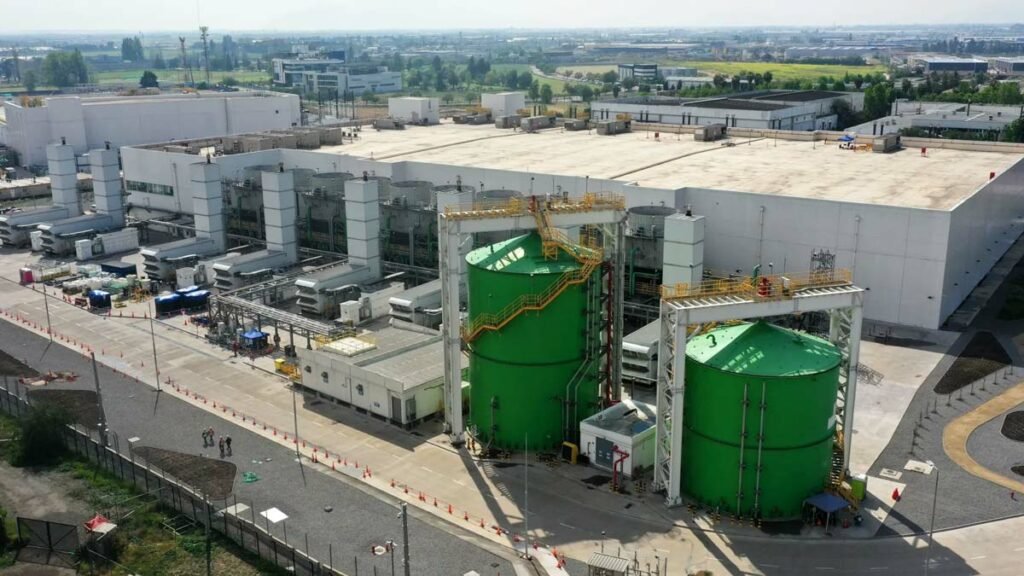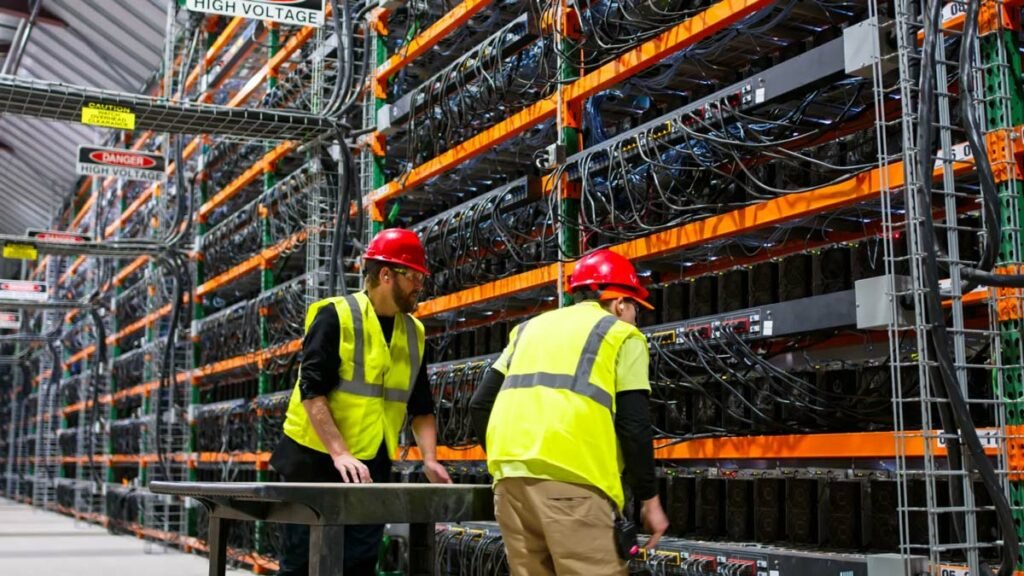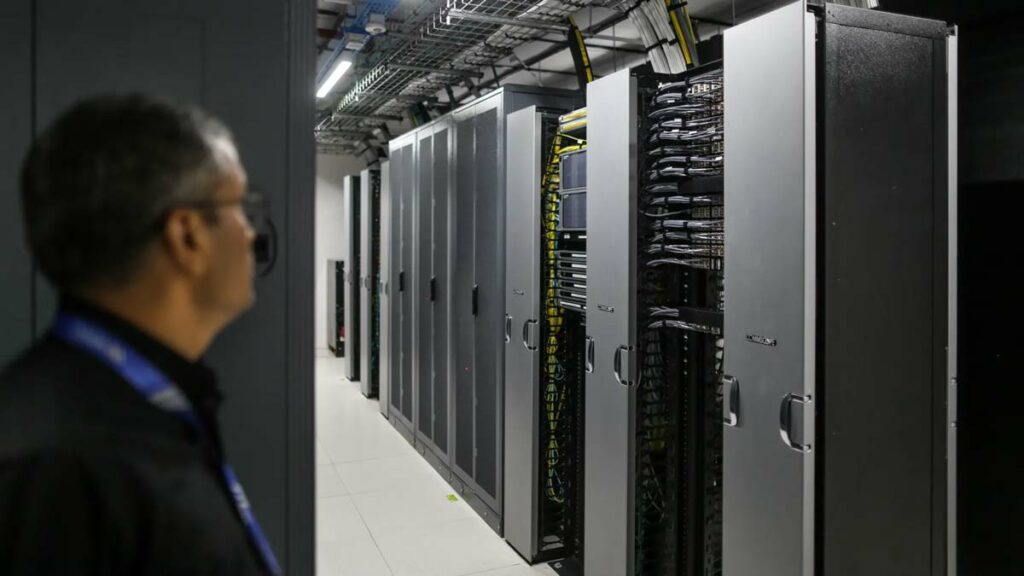Tech giants are looking for efficient ways to provide the huge amount of energy needed to harness the capabilities of artificial intelligence.
The continued rapid and massive growth in the number of data centers around the world has forced major technology companies to consider how best to power the AI revolution. Moving towards nuclear power, liquid cooling for data centers and quantum computing are some of the options available to provide the energy needed to power AI.
Critics have said that as the pace of electricity reduction slows, tech giants need to be acutely aware of the costs of boosting productive artificial intelligence across the supply chain, and stop simply thinking about rapid progress and removing bottlenecks.
Somya Joshi, Head of Global Programs, Climate and Systems at the Stockholm Environment Institute (SEI), said in an interview:
“The true environmental cost is currently unclear. “Only tech companies get subsidies, justifying that they have to sell their products and get support from the government.”
According to the International Energy Agency, the wave of investment in data centers will increase even more in the coming years; The reason for this is mainly due to the growth of digitalization and adoption of productive artificial intelligence.
This prospect has raised concerns related to increased electricity demand as well as the environmental impact of artificial intelligence; Such concerns are often ignored; But they are very important.
Data centers, which consume an increasing amount of energy, are the key infrastructure required to use modern cloud computing services and take advantage of AI.
“Gianpiero Frisio”, head of the power supply department at the Swiss multinational company ABB, admitted that the data center business of this engineering group has grown significantly in recent years, and this sector is on the way to grow by more than 24% in 2024.
According to Frizio, ABB is well positioned to provide the necessary equipment to medium and large industrial companies in order to set up a data center in the field of increasing demand for the use of artificial intelligence.
Frizio said in an interview about this issue:
“I think the best measure at the moment is to reduce energy consumption; Such an approach is considered the best way; Because there is the necessary technology to realize such a goal, for example, by using the “HiPerGuard” emergency power supply with medium voltage, we can keep the power consumption low and even maintain this trend.
HiPerGuard UPS is ABB’s industrial medium voltage emergency power supply, which, according to company officials, is capable of providing uninterrupted power to large facilities.
Frizio said about this:
“Undoubtedly, the second necessary action is to move towards the use of liquid cooling systems. This issue is also raised from the point of view of reducing energy consumption; Because the power density of server racks (those black boxes that look like closets and all servers are located in them) is supposed to be 4 to 6 times higher than before. “After launching liquid cooling systems, we are talking about launching modular nuclear systems in the next 5 to 10 years.”
The technology movement of large technology companies towards nuclearization
US tech giants – Microsoft, Google and Amazon – have all signed several billion-dollar nuclear power deals in recent months; These contracts were signed to gain more energy to train and run the generative AI models that are the foundation of today’s AI services.
The growing demand for the use of generative AI has coincided with efforts to design and build efficient cooling systems in data centers, especially liquid cooling systems that use water to cool servers and other electronic equipment.

French power equipment company Schneider Electric recently signed a deal worth $850 million; This contract was signed to acquire the controlling shares of Motivair Corp, an American company specializing in the design and manufacture of liquid cooling systems for computing equipment.
Schneider Electric’s CEO at the time acknowledged that the deal, which was designed to increase the company’s offerings to data centers, was valuable but not expensive and fully aligned with the company’s strategies.
Some activists in the field of technology have proposed to stop the emission of carbon dioxide from data centers, in addition to the creation of nuclear power plants and liquid cooling systems, efforts should also be made to realize internal developments in the field of artificial intelligence.
For example, Eric Schmidt, the former CEO of Google, openly admitted last month that Google will not meet its climate goals. Investing in artificial intelligence could be effective in solving some of the biggest environmental challenges, but Joshi of the Stockholm Environment Institute rejects such a view.
Joshi said about this:
“Such arguments are not new and are largely aligned with slogans like ‘silver bullet’ and ‘technology will save us.’ (A silver bullet means finding a simple solution to a difficult problem). On the other hand, we say that we are operating within planetary limits, but by crossing these boundaries and continuing with the same methods of energy consumption, we expect to solve the current problem. Such a view and approach are completely contradictory to each other.”
Quantum computing
Raj Hazra, CEO of Quantinuum, the world’s largest integrated quantum computing company, said in an interview:
I think that after the peak of prosperity and prosperity of any new technology, the period of forgetting that technology also comes, until then we don’t care about it. This is the way I use it to describe what’s happening in the field of generative artificial intelligence, the infrastructure needed to support it, and the building of massive data centers necessary.”
According to Hazra, optimism about the flourishing of productive artificial intelligence has increased the use of this technology. He says about this:
Although AI is amazing, there are 2 challenging questions about it; First, are the sources of power supply for this technology sustainable? Second, is the responsibility for its creation assumed? The reason for proposing this issue is the high importance of using quantum computers to solve both challenges.

Quantum computers refer to an area of computer science that solves very complex problems using the laws of quantum mechanics.
According to Hazra, recently, reputable companies and strategic investors have shown great interest in Quantinuum, a company active in the field of quantum computing; The company has raised about 300 million dollars in its latest round of equity financing. Honeywell, which is the main shareholder of Quantinium, announced that this effort to finance has brought the value of Quantinium to 5 billion dollars.
Hazra added:
“One of the points that is now clear is that it is no longer enough to say I have a solution to a particular problem, but I have to say I have a sustainable solution to the problem.”
In his opinion, quantum computers can make artificial intelligence both stable and responsible, and this ability can be the biggest achievement of quantum computers for society.
He said about this:
“I predict that in the next 3-5 years, people will be asking what is my computing infrastructure to run my business? This infrastructure will be a combination of efficient computing power, artificial intelligence and quantum computing.”
RCO NEWS


















